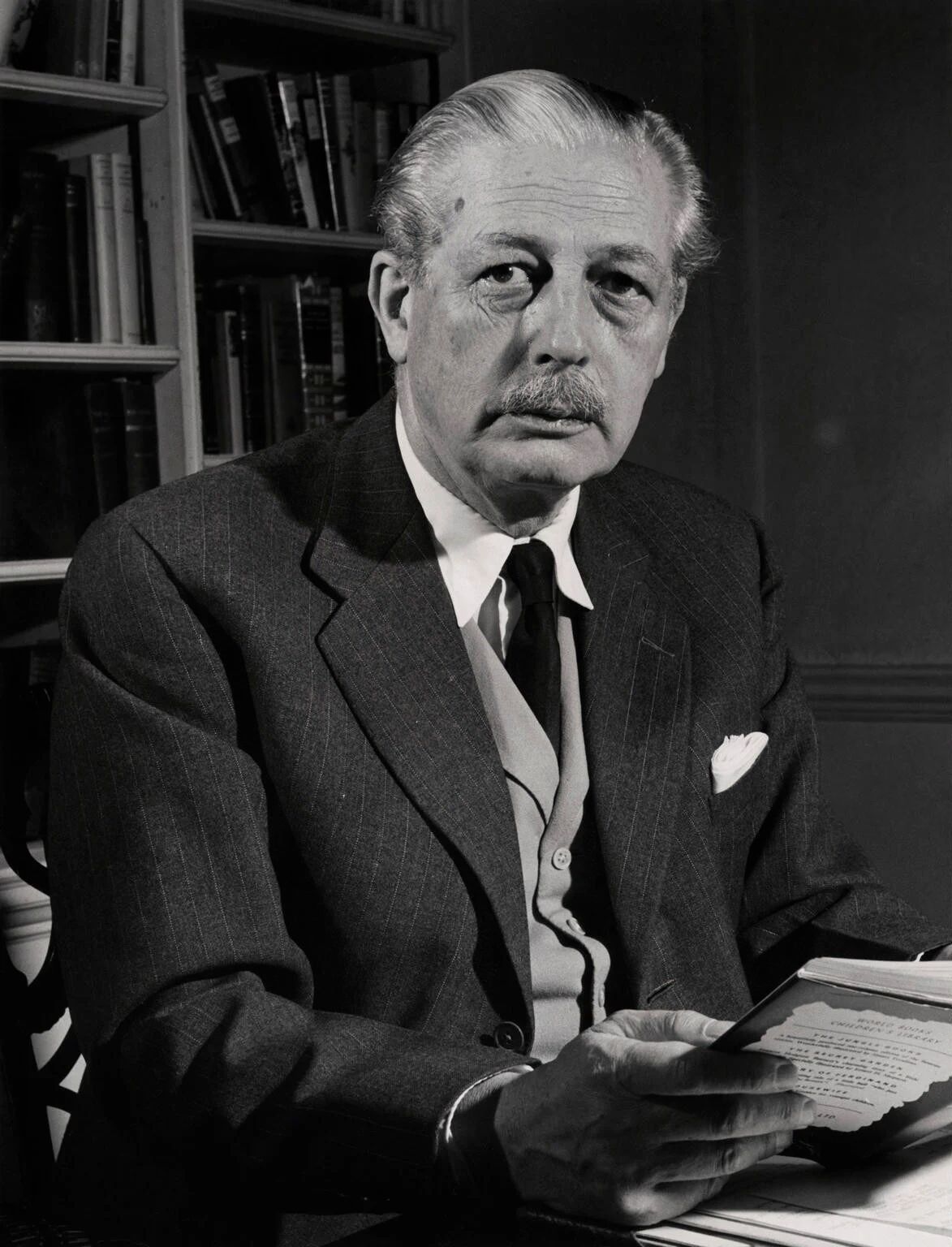1973
Our President in 1973/4 was:
The Right Hon. Harold Macmillan
He proposed the Toast to Sir Walter at our 66th Annual Dinner on Friday 1st March 1974 in The North British Hotel, Edinburgh
(audio incomplete)
Download the [transcript] or read the [bulletin]
Summary of the Speech:
Harold Macmillan’s address is both a personal reflection and a profound tribute to Sir Walter Scott. At 80 years old, he speaks with heartfelt emotion about his Scottish ancestry, his grandfather’s struggles, and the enduring influence of Scott’s writings throughout his life.
Key Themes and Highlights:
1. Personal Roots and Ancestry:
- Macmillan begins with family history, tracing his grandfather Daniel Macmillan’s journey from the Isle of Arran to London in 1833. The story of Daniel’s hardship and literary dedication is used to underscore a lineage of Scottish resilience and love for books.
- He connects these personal experiences with Scott’s ability to understand and represent the hardships and dreams of Scottish people.
2. Enduring Legacy of Scott’s Characters:
- Macmillan celebrates the vividness and emotional reality of Scott’s fictional characters, comparing them favourably to real acquaintances. He lists memorable figures from Scott’s Scottish novels (e.g. Jeanie Deans, Dandie Dinmont, Bailie Nicol Jarvie), praising their enduring humanity.
- He quotes extensively from Scott’s dialogue, including scenes from Waverley, Guy Mannering, and The Antiquary, especially highlighting the dramatic speeches of Evan Dhu, Meg Merrilies, and Saunders Mucklebackit.
3. Defence Against Critics:
- He rebukes the idea that Scott is “old hat” or irrelevant to modern readers, noting that many schoolboys only remember being forced to read Ivanhoe or Kenilworth and overlook the brilliance of the Scottish novels.
- He argues that Scott was revolutionary in style, particularly through his rhythmic poetry (The Lay of the Last Minstrel) and vivid narrative experimentation.
4. Literary Innovation and Emotional Depth:
- He praises Scott’s originality, his introduction of songs into novels (e.g. “Proud Maisie”), and his ability to evoke tragic grandeur, notably in The Bride of Lammermoor, which Scott dictated during agonising illness and later read with horror due to its intensity.
5. Scott as National Unifier:
- Macmillan credits Scott with giving Scotland a new sense of national identity and pride, describing how Rob Roy and Waverley helped demystify and humanise the Highland character for Lowlanders and beyond.
6. Scott the Man – Charm and Courage:
- In closing, Macmillan reflects on Scott’s personal qualities: his charm, modesty, storytelling warmth, and most of all, his courage. He highlights Scott’s heroic response to illness and financial ruin, particularly his sense of honour in repaying his debts and continuing to write despite extreme pain.
Interesting Points:
- Macmillan likens Scott to Balzac and Tolstoy, and defends him against the charge that he wasn't an artist, quoting Stevenson’s critique only to refute it with passion.
- His warm recollections of reading Scott at No. 10 Downing Street add a poignant personal touch.
- The inclusion of several long dramatic quotations adds theatrical flair to the toast, making it feel more like a dramatic performance than a mere speech.
Tone and Style:
- Reflective, erudite, passionate, and deeply personal.
- Combines literary analysis, autobiographical storytelling, and national tribute in a seamless and engaging manner.
Download the [transcript] or read the [bulletin]

Subsidiary Toasts
After the toast to The Queen had been honoured, the Chairman proposed “The City of Edinburgh” to which the Rt. Hon. John Kane, O.B.E., The Lord Provost, replied.
The Toast of “Her Majesty’s Forces” was proposed by Mr Alastair M. Dunnett and the reply was made by Lieutenant General Sir Chandos Blair, K.C.V.O., O.B.E., M.C. (G.O.C., Scotland).
The toast to “The Chairman” was proposed by The Rt. Hon. Lord Milligan, P.C.


